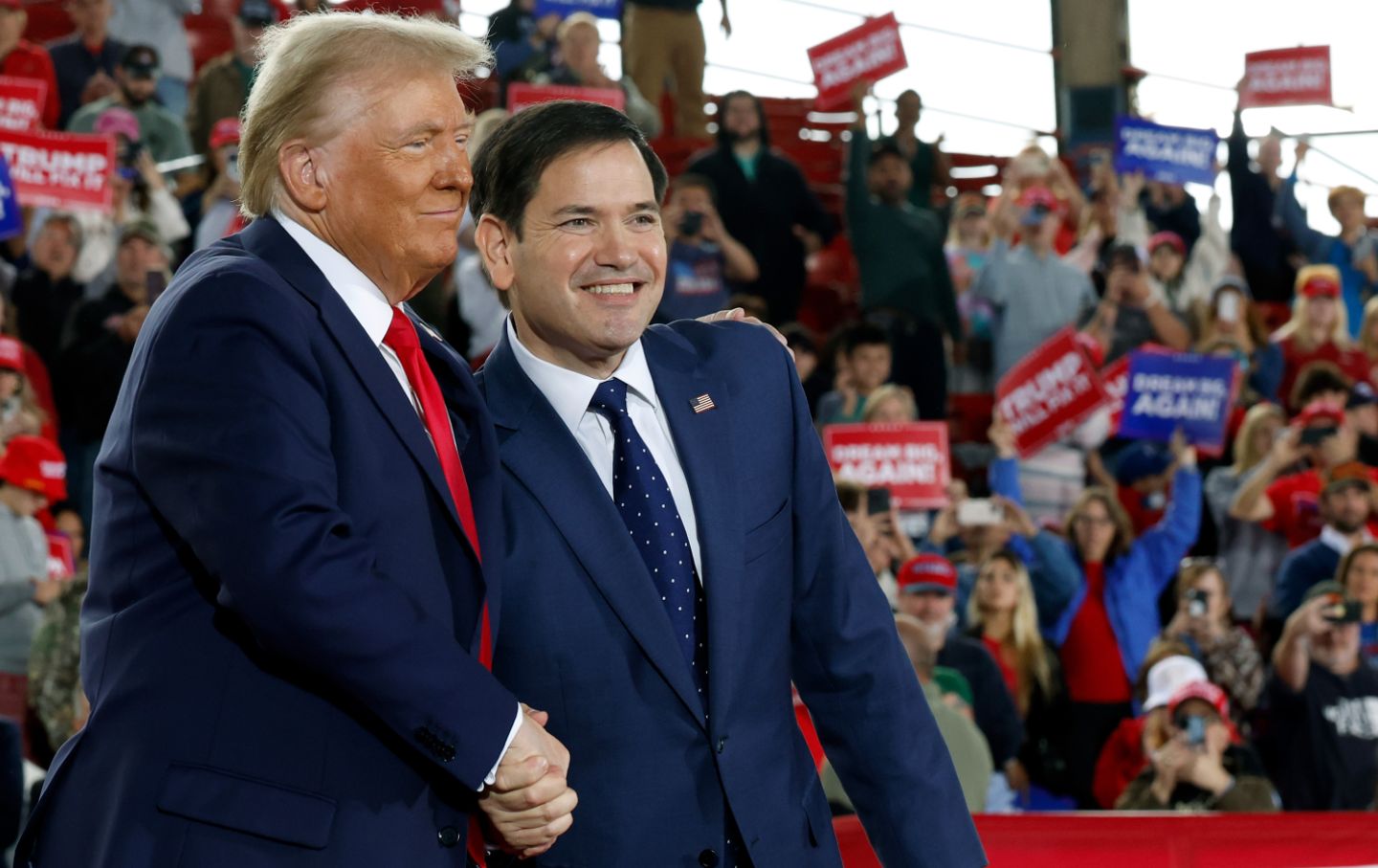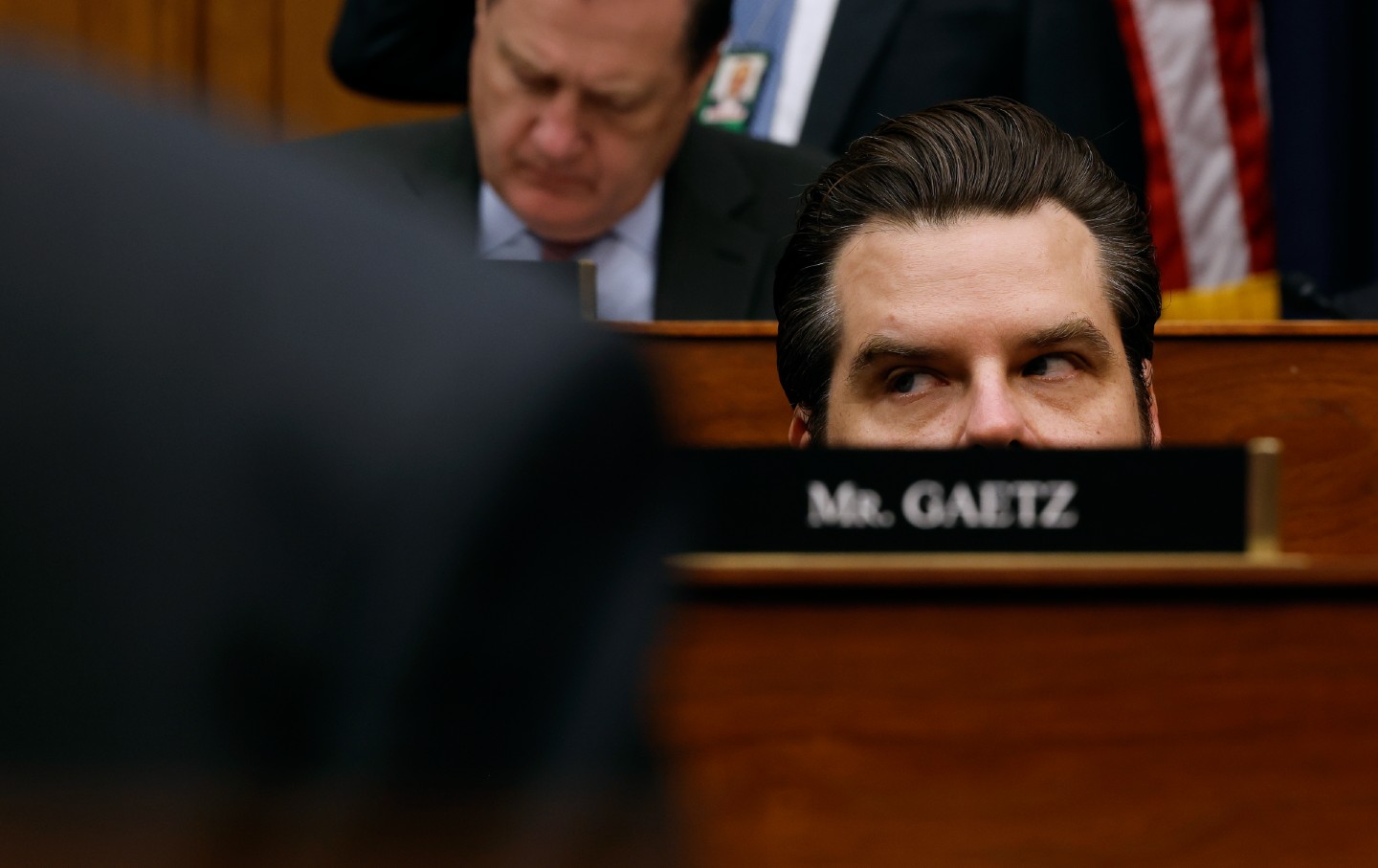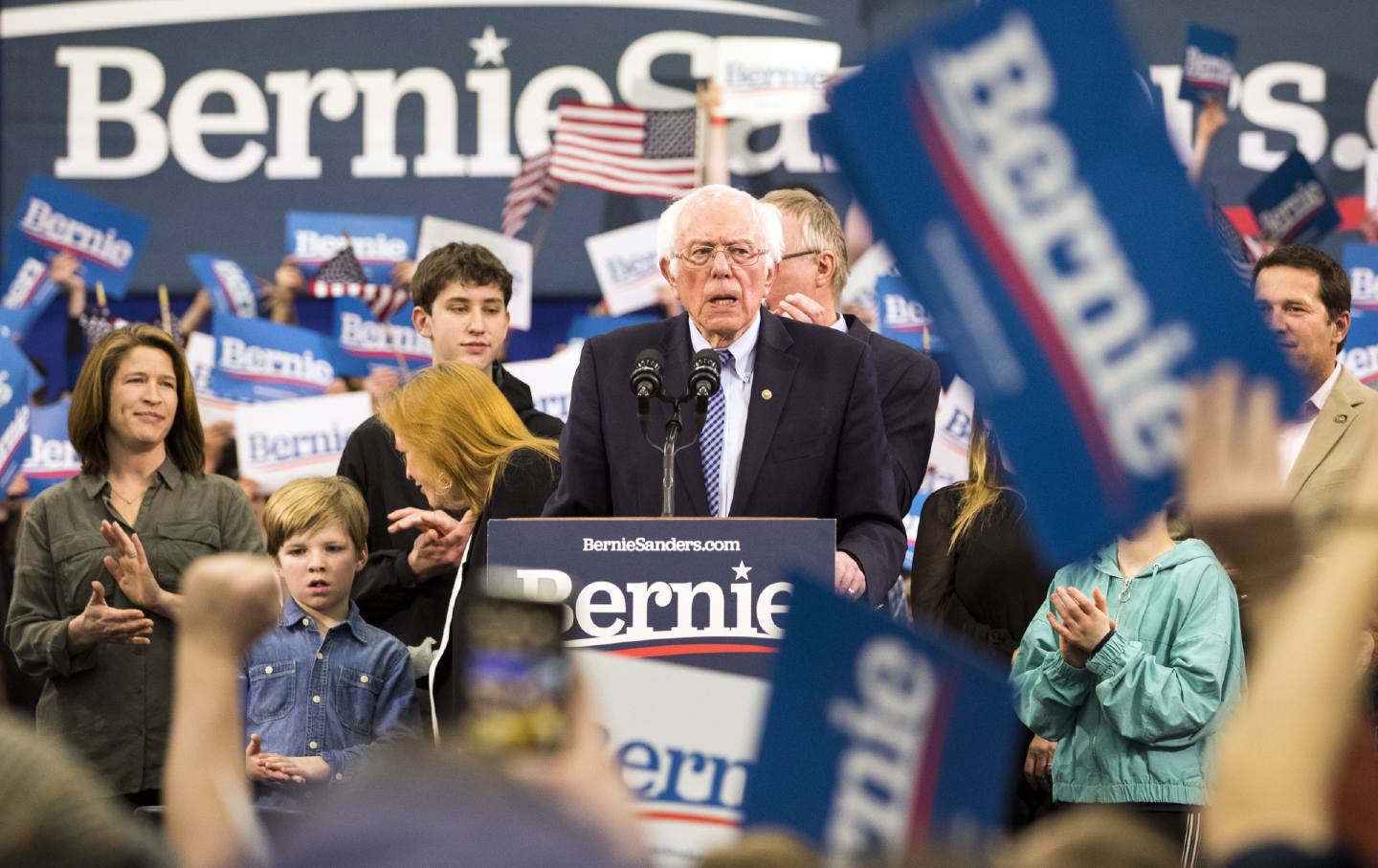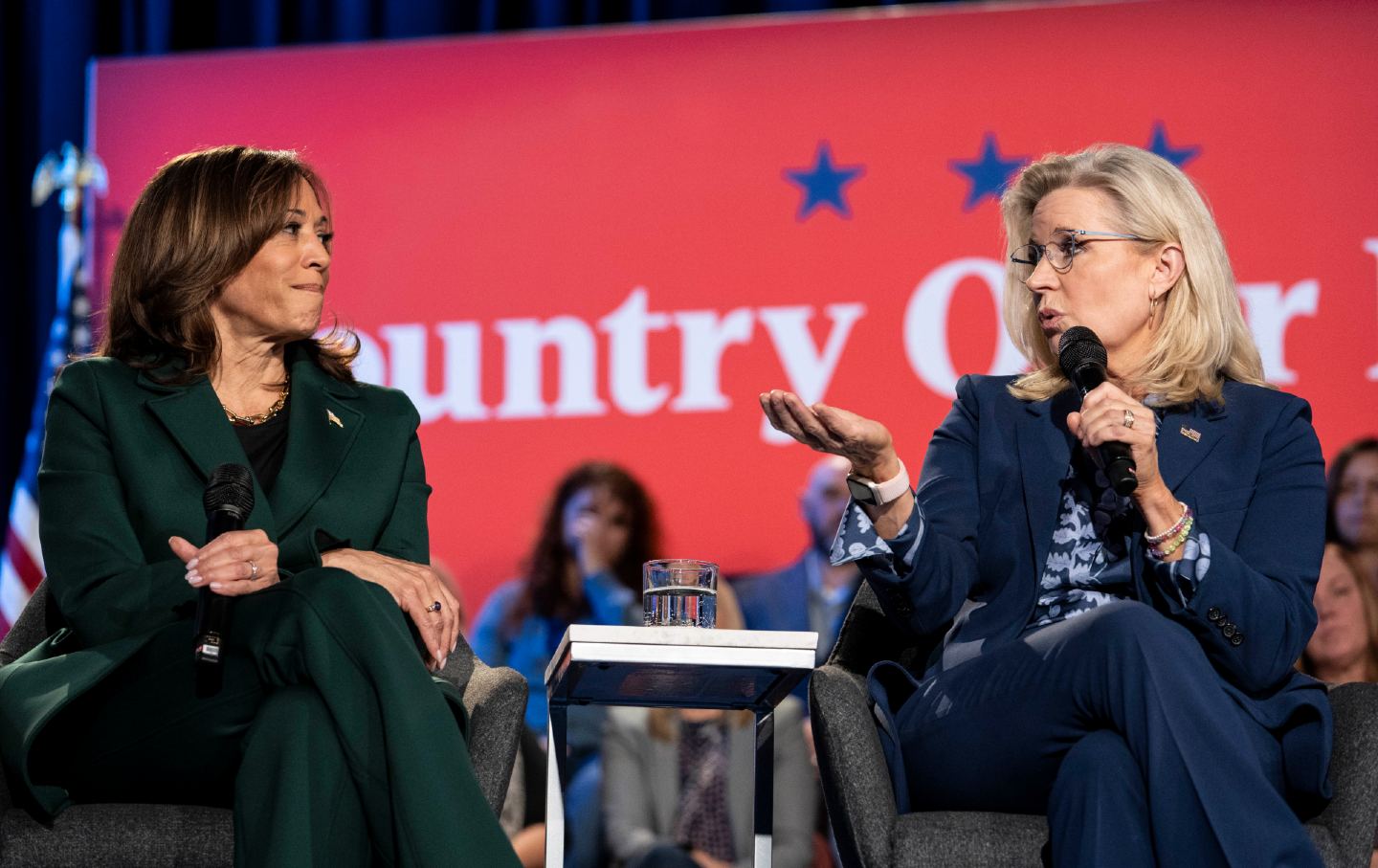Only a Working-Class Party Can Challenge Donald Trump’s Corruption
GOP plutocracy thrives as long as Democrats remain beholden to Wall Street.

The late Mario Cuomo had a rueful phrase he liked to repeat: “You campaign in poetry; you govern in prose.” Donald Trump has an even simpler political formula: Campaign like a populist; govern like a plutocrat. That was the pattern of his first term in office, when he ran as an avatar of working-class rage—but filled his cabinet with more millionaires and billionaires than any previous president, with his most lasting domestic legacy being massive tax cuts that skewed toward enriching the already ultra-wealthy.
There’s every sign that Trump will repeat the same trick in his second go-round in the White House, with the only difference being that his second administration will be even more openly corrupt in accepting dark-money donations from the rich. Trump’s shell game is so obvious you would think it wouldn’t work on even the most gullible rube at a carnival. Yet Trump has a singular advantage in pulling off this hustle: In a two-party system, voters have to choose between him and the Democrats—a party that is so beholden to corporate money that it consistently mutes criticism about Trump’s corrupt plutocracy.
Two recent New York Times reports highlight how Trump will govern as a president for the rich and evade even the most basic guardrails against corruption.
On Monday, the newspaper reported on how Trump’s economic policy will be dominated by Wall Street:
When Donald J. Trump first ran for the White House in 2016, his closing campaign advertisement lamented the influence of Wall Street in Washington, flashing ominous images of big banks and the billionaire liberal philanthropist George Soros.
Now, as president-elect, Mr. Trump has tapped two denizens of Wall Street to run his economic agenda. Scott Bessent, who invested money for Mr. Soros for more than a decade, is his pick for Treasury secretary, and Howard Lutnick, the chief executive of Cantor Fitzgerald, will be nominated to lead the Commerce Department. Mr. Trump’s choices to lead his economic team show the prominence of billionaire investors in setting an agenda that is supposed to fuel a “blue-collar boom” but that skeptics think will mostly benefit the rich.
On Sunday, the Times reported that the Trump transition was being paid for by big groups who enjoyed an unprecedent protection from public disclosure:
President-elect Donald J. Trump is keeping secret the names of the donors who are funding his transition effort, a break from tradition that could make it impossible to see what interest groups, businesses or wealthy people are helping launch his second term.
Mr. Trump has so far declined to sign an agreement with the Biden administration that imposes strict limits on that fund-raising in exchange for up to $7.2 million in federal funds earmarked for the transition. By dodging the agreement, Mr. Trump can raise unlimited amounts of money from unknown donors to pay for the staff, travel and office space involved in preparing to take over the government.
What is striking about these reports is the relative lack of complaints from Democrats about Trump’s betrayal of his populist promises or his flagrant corruption. Watchdog groups such a Accountable.US have criticized Trump’s Wall Street cabinet, but most of the press attention and political opposition have focused on candidates accused of scandalous sexual misconduct such as Matt Gaetz (who withdrew as nominee to be attorney general) or Pete Hegseth (still on track to be secretary of defense, despite a disturbing sexual assault allegation).
On Thursday, Elizabeth Warren sent a letter to the Biden administration warning that the Trump transition team’s lack of an ethics plan increases “the risk of the incoming administration governing for the benefit of special interests rather than the American public.”
Warren’s sober words stand in contrast to the general silence of Democrats on the dangers of plutocracy and corruption in the Trump administration. In the decade since Trump emerged as a national figure, Democrats haven’t been shy about going after the Republican demagogue on other matters, but have generally picked fights where they think they can win bipartisan support. This is why Democrats invested so heavily in the Russiagate investigation, which largely fizzled: It was a transparent ploy to win over Republican national security hawks worried about Trump’s heterodox foreign policy ideas. But Trump’s ties to Russia were nebulous, especially compared to his family’s deep connections with Middle Eastern autocracies such as Saudi Arabia. Trump’s son-in-law Jared Kushner, who played a major role in setting Middle Eastern policy in Trump’s first administration, has gone on to run a hedge fund that has received at least $2 billion in Saudi funding. But doing business with the Saudi autocracy is a bipartisan vice, one that is interwoven with the power and influence of the military-industrial complex.
Democrats are too tied to plutocracy themselves to make an effective populist critique of Trump’s corruption. In the recent election, Kamala Harris allowed Wall Street donors to shape her economic message, for example vetoing any naming and shaming of those who engage in price gouging.
In the wake of Harris’s defeat, Bernie Sanders has revived his criticism of the Democratic Party’s abandonment of the working class and economic populism. On the weekend, Sanders wrote:
Will the Democratic leadership learn the lessons of their defeat and create a party that stands with the working class and is prepared to take on the enormously powerful special interests that dominate our economy, our media and our political life?
Highly unlikely.
They are much too wedded to the billionaires and corporate interests that fund their campaigns.
The one way forward remains the model Sanders laid out in his 2016 and 2020 runs: a small-donor-funded campaign that, by eschewing corporate funding, is free to run on unvarnished economic populism. The singular advantage of such a campaign is that it wouldn’t get mired in convoluted distractions such as Russiagate but would instead be free to openly denounce Trump for being the plutocrat he is. Sanders himself is too old to run again, but the pathway remains open for some future candidate (perhaps United Auto Workers head Shawn Fain or Representative Alexandria Ocasio-Cortez) to take up the mantle and give the Democrats the only type of fighting leadership that can truly vanquish Trumpism.
We cannot back down
We now confront a second Trump presidency.
There’s not a moment to lose. We must harness our fears, our grief, and yes, our anger, to resist the dangerous policies Donald Trump will unleash on our country. We rededicate ourselves to our role as journalists and writers of principle and conscience.
Today, we also steel ourselves for the fight ahead. It will demand a fearless spirit, an informed mind, wise analysis, and humane resistance. We face the enactment of Project 2025, a far-right supreme court, political authoritarianism, increasing inequality and record homelessness, a looming climate crisis, and conflicts abroad. The Nation will expose and propose, nurture investigative reporting, and stand together as a community to keep hope and possibility alive. The Nation’s work will continue—as it has in good and not-so-good times—to develop alternative ideas and visions, to deepen our mission of truth-telling and deep reporting, and to further solidarity in a nation divided.
Armed with a remarkable 160 years of bold, independent journalism, our mandate today remains the same as when abolitionists first founded The Nation—to uphold the principles of democracy and freedom, serve as a beacon through the darkest days of resistance, and to envision and struggle for a brighter future.
The day is dark, the forces arrayed are tenacious, but as the late Nation editorial board member Toni Morrison wrote “No! This is precisely the time when artists go to work. There is no time for despair, no place for self-pity, no need for silence, no room for fear. We speak, we write, we do language. That is how civilizations heal.”
I urge you to stand with The Nation and donate today.
Onwards,
Katrina vanden Heuvel
Editorial Director and Publisher, The Nation









